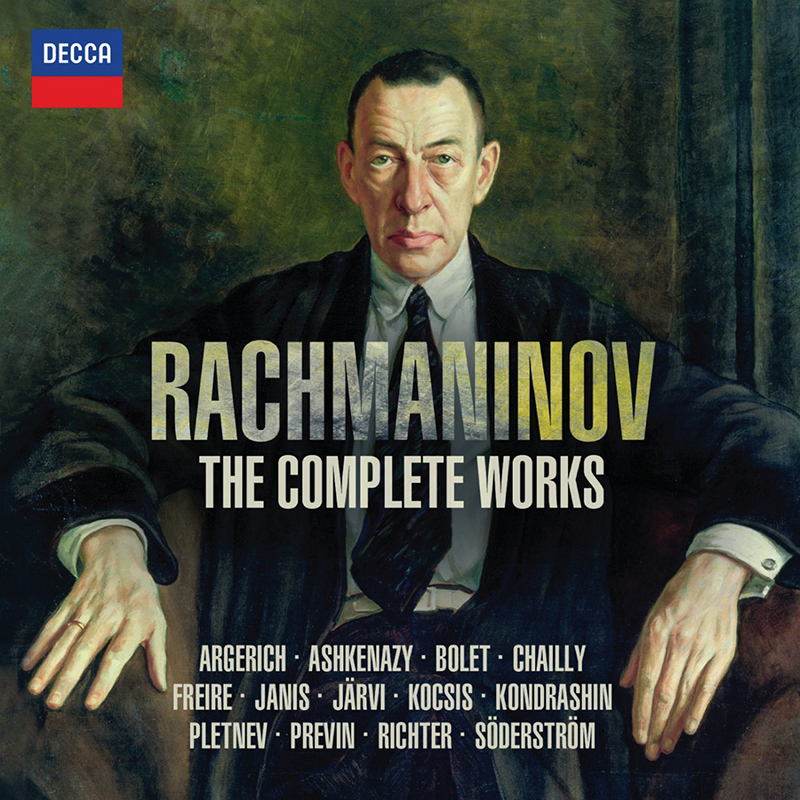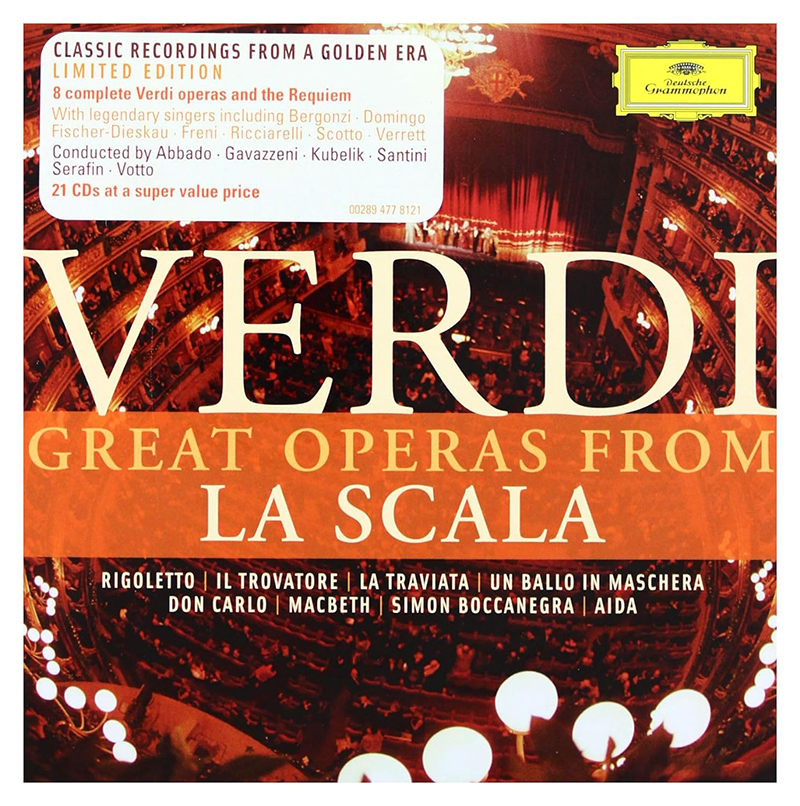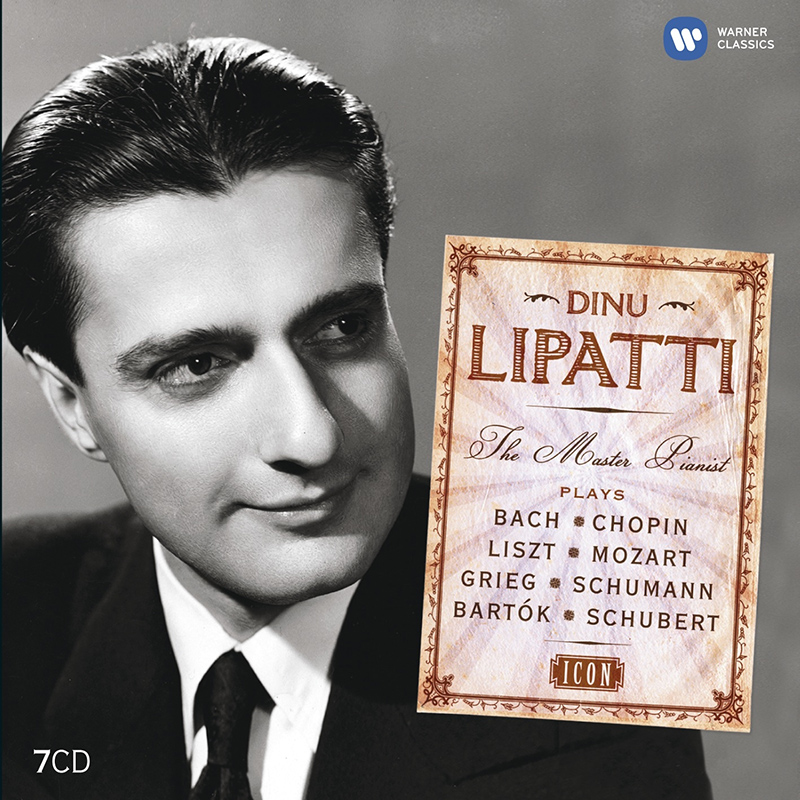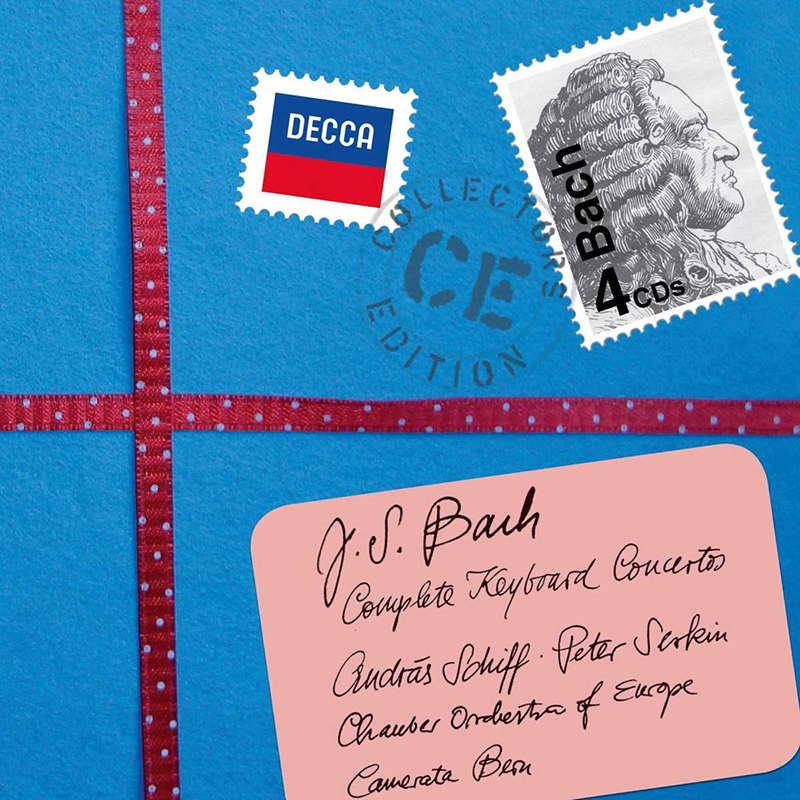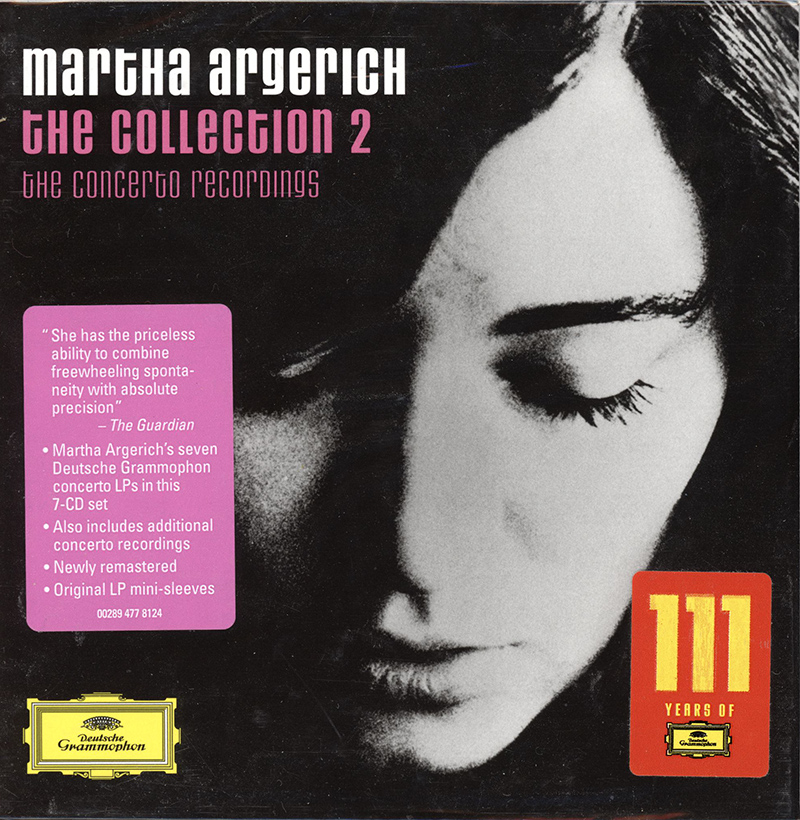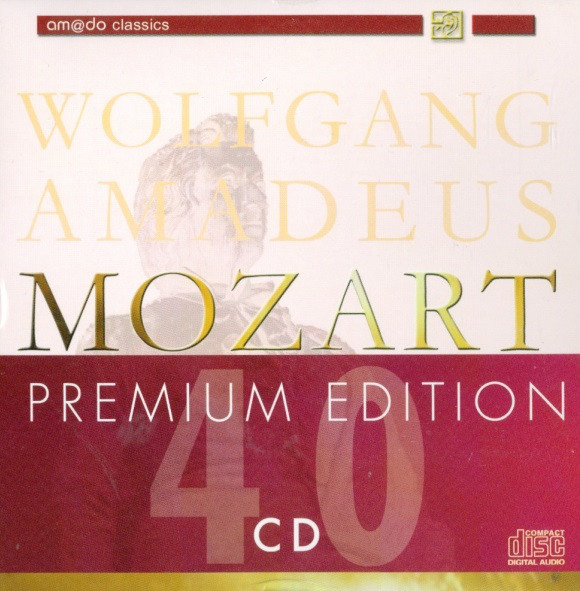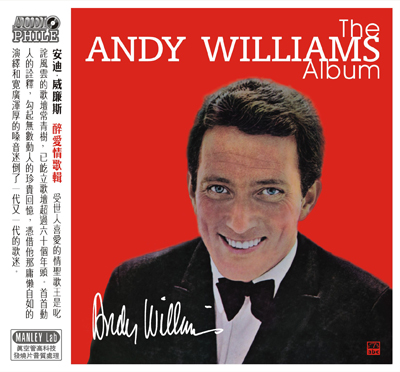Logowanie
KOLEKCJE!
BACH, CHOPIN, LISZT, MOZART, GRIEG, Dinu Lipatti, Otto Ackermann, Ernest Ansermet
The Master Pianist
PROKOFIEV, CHOPIN, TCHAIKOVSKY, SCHUMANN, BEETHOVEN, Martha Argerich, Claudio Abbado, Giuseppe Sinopoli
The Concerto Recordings
The Collection 2
Jakość LABORATORYJNA!
ORFF, Gundula Janowitz, Gerhard Stolze, Dietrich-Fischer Dieskau, Deutsche Oper Berlin, Eugen Jochum
Carmina Burana
ESOTERIC - NUMER JEDEN W ŚWIECIE AUDIOFILII I MELOMANÓW - SACD HYBR
Winylowy niezbędnik
ClearAudio
Essence MC
kumulacja zoptymalizowana: najlepsze z najważniejszych i najważniejsze z najlepszych cech przetworników Clearaudio
Direct-To-Disc
PIAZZOLLA, ChamberJam Europe
Tangos del Ángel y del Diablo
Direct-to-Disc ( D2D ) - Numbered Limited Edition
Andy Williams
The Andy Williams Album
- Andy Williams - vocal
AAD is a Digital Copy Of The Master Tape
Howard Andrew Williams (born on thrid, December, 1927 in Wall Lake, Iowa), known as Andy Williams, is an American pop singer. He has recorded 18 Gold albums and performed with Ray Charles, Elton John, Ella Fitzgerald, Simon and Garfunkel, Mama Cass and Michael Jackson. When Ronald Reagan was President, he declared Andy's voice to be "a national treasure". He has had his own TV show as well as starring in a number of films. He also owns his own theatre, the Moon River in Branson, Missouri.
Williams first performed in a children's choir at the local Presbyterian church. Later, he and his three older brothers Bob, Dick, and Don, formed a quartet, the Williams Brothers, in the late 1930s. Due to their performance with Bing Crosby on the hit record "Swinging on a Star" (1944), they signed a nightclub act with entertainer Kay Thompson from 1947 to 1951.
Williams's solo career began in 1952 after his brothers left the act. In 1955—three years after the separation, he was signed to a recording contract with Cadence Records, a small label in New York run by conductor Archie Bleyer. His third single, "Canadian Sunset" (1956) hit the Top Ten, and was soon followed his only Billboard No.1 hit, "Butterfly". More hits followed, including "The Hawaiian Wedding Song", "Are You Sincere", "The Village of St. Bernadette", and "Lonely Street". Before moving to Columbia Records in 1961, Williams had moved from New York to Los Angeles. In terms of chart popularity, the Cadence era was Williams's peak although songs he introduced on Columbia became much bigger standards. Two top ten hits from the Cadence era, "Butterfly" and "I Like Your Kind of Love" were apparently believed to not suit Williams's later style; they were not included on a Columbia reissue of his Cadence greatest hits in the 1960s. In 1970, although still under contract with Columbia for his own recordings, Williams formed a separate company called Barnaby Records.
During the 1960s, Williams became one of the most popular vocalists in the country and was signed to what was at that time the biggest recording contract in history. He was primarily an album artist, and at one time he had earned more gold albums than any solo performer except Frank Sinatra, Johnny Mathis and Elvis Presley. By 1973 he had earned as many as 18 gold album awards. Among his hit albums from this period were Moon River, Days of Wine and Roses (number one for 16 weeks in mid-1963), The Andy Williams Christmas Album, Dear Heart, The Shadow of Your Smile, Love, Andy, Get Together with Andy Williams, and Love Story. In these recordings, Williams displays an incredible vocal technique along with an uncanny ability to make each song his very own, often rivaling or surpassing the version by the original artist. These attributes, along with his natural affinity for the music of the 1960s and early 1970s, combined to make him one of the premier easy listening singers of that era. In the UK, Williams continued to reach high chart status until 1978. The albums Can't Help Falling In Love (1970), Andy Williams Show (1970) Home Lovin’ Man ( No.1 1971), Solitaire (1973), The Way We Were (1974) and Reflections (1978) all reached the Top 10.
Williams forged an indirect collaborative relationship with Henry Mancini, although they never recorded together. Williams was asked to sing Mancini and Johnny Mercer's song "Moon River" at the 1962 Oscar Awards (where it won), and it quickly became Williams's theme song. The next year Williams sang "Days of Wine and Roses" which was written by Mancini and Mercer (this song also won). Two years later, he sang Mancini's "Dear Heart" at the 1965 awards and "The Sweetheart Tree" (also written with Mercer) at the 1966 awards.
In 1968, Columbia released a 45-rpm record of two songs Williams sang at the funeral of Robert F. Kennedy, a close friend: "Ave Maria" and "The Battle Hymn of the Republic". These were never released on a long-playing record.
Williams also competed in the teenage-oriented singles market as well and had several charting hits including "Can't Get Used to Losing You," "Happy Heart," and "Where Do I Begin", the theme song from the 1970 blockbuster film, Love Story. In addition Williams hit the UK Top 10 singles chart with, "Almost There" (1965),"Can't Help Falling In Love" (1970), "Home Lovin' Man"(1970) and "Solitaire"(1973). Building on his experience with Allen and some short-term variety shows in the 1950s, he became the star of his own weekly television variety show in 1962. This series, The Andy Williams Show, won three Emmy Awards for outstanding variety program. Among his series regulars were the Osmond Brothers. He gave up the variety show in 1971 while it was still popular and retrenched to three specials per year. His Christmas specials, which appeared regularly until 1974 and intermittently from 1982 into the 1990s, were among the most popular of the genre. Williams has recorded eight Christmas albums over the years. He hosted the Grammy Awards for three consecutive years in the 1970s. He returned to television to do a syndicated half-hour series in 1976–77.
In the early 1990s, Williams gave up most of his touring schedule in order to open his own theatre in Branson, Missouri, the Andy Williams Moon River Theater. He continues to do 8 to 12 shows a week from September to December and occasionally makes tours of Europe earlier in the year. Andy Williams also invites Star Guests to appear with him in the Spring time yearly. In 2006, Petula Clarke appeared with him, and in 2007, he had Charo and Glen Campbell.
His 1967 recording of "Music to Watch Girls By" was a surprise UK hit in 1999, when it reached number 9 after featuring in an advert. A new generation was reminded of Williams' recordings and a sell-out UK tour followed the success of the single, and he was given the nickname "The Emperor of Easy" in the UK. In 2002 he took part in a new duet of "Can't Take My Eyes Off You" with British actress and singer Denise van Outen. Nearly everything Williams ever recorded has now been made available on CD through a series of compilations from 1997 to 2006.
At present now he's doing a UK Tour 2007 at several concert halls including Royal Albert Hall in which he will be performing all his brits hits to his beloved fans in England.
 Zapraszamy
Zapraszamy
Nie super cyfrowa produkcja, nie doskonale tłoczony winyl – tylko taśma!
W ABC Int’l Records magnetofon STUDER A80 odczytuje zapis z taśmy. Powstaje kopia AAD. Cyfrowa kopia źródła analogowego. Ten trafia do HHB CDR-830 – profesjonalnego duplikatora płyt CD-R - AAD Digital CD. Innymi słowy – otrzymujemy dysk, z którego zazwyczaj robi się matrycę do tłoczenia milionów kopii konsumenckich CD. Tych, które obarczone są wszystkimi błędami kolejnych etapów produkcji tejże płyty. Zamiast źródlanej – woda przegotowana, w najlepszym przypadku!
Płyty AAD Digital CD 1:1 są więc cyfrowymi kopiami taśmy-matki. Wolnymi od jakichkolwiek procesów edycyjnych, poprawczych czy uszlachetniających. Dostajemy do ręki to, co artysta wykonał w studiu lub na koncercie, technik zapisał na taśmie, a obaj, po odsłuchu materiału w wozie transmisyjnym czy studiu nagraniowym orzekli: tak, to nasza muzyka, nasza realizacja, dokładnie tak graliśmy, jak nasz kolega utrwalił na taśmie.
Wreszcie CD High Damping Coating. Technologia w ogólnym ujęciu znana od ćwierćwiecza, nieustanie doskonalona, wykorzystująca materiały o idealnej przejrzystości, a więc ciekłokrystaliczne. W płytach oferowanych przez ABC – zastosowano dodatkowo powłokę tłumiącą wszelkie fizyczne i elektroniczne, niepotrzebne artefakty. Po prostu – otrzymujemy – kopię taśmy-matki na płycie CD o rewelacyjnych walorach dźwiękowych w porównaniu z krążkami bazującymi na tworzywie poliwęglanowym.
****
Płyta Sampler przygotowana we współpracy z Manley Lab aby najlepiej zaprezentować możliwości sprzętu tej firmy.
